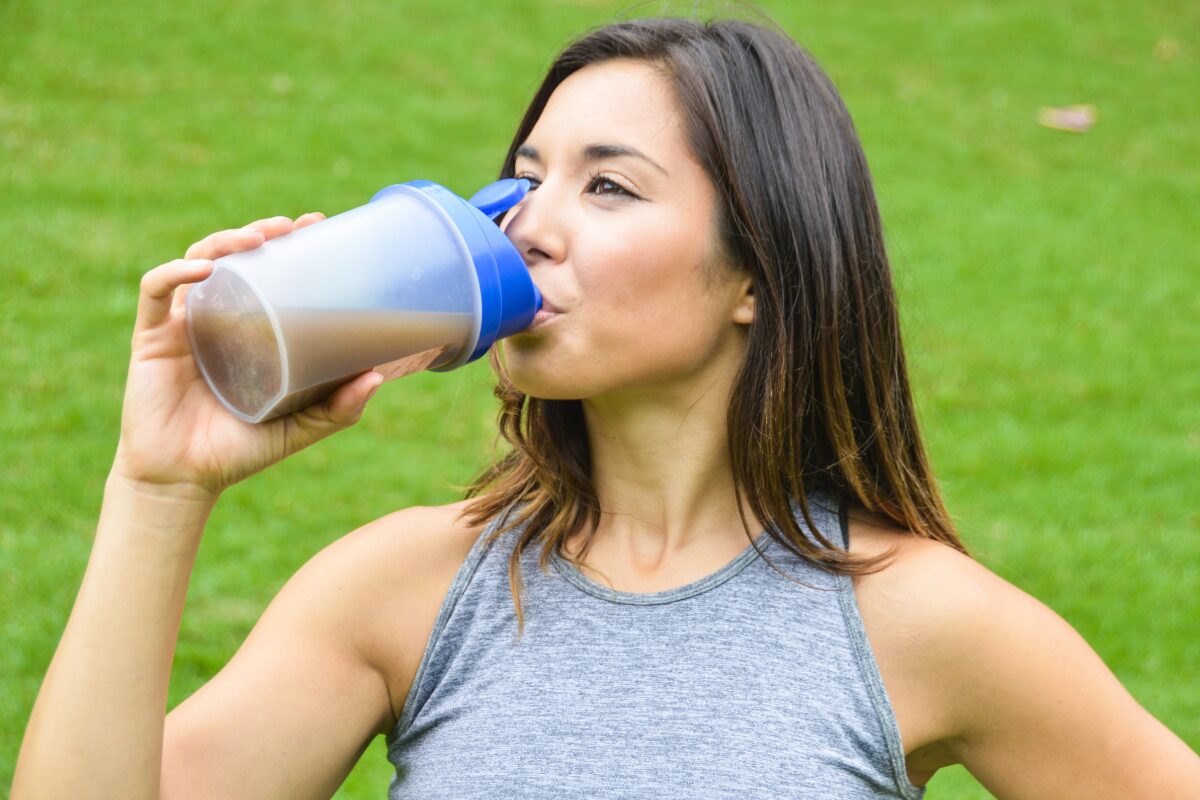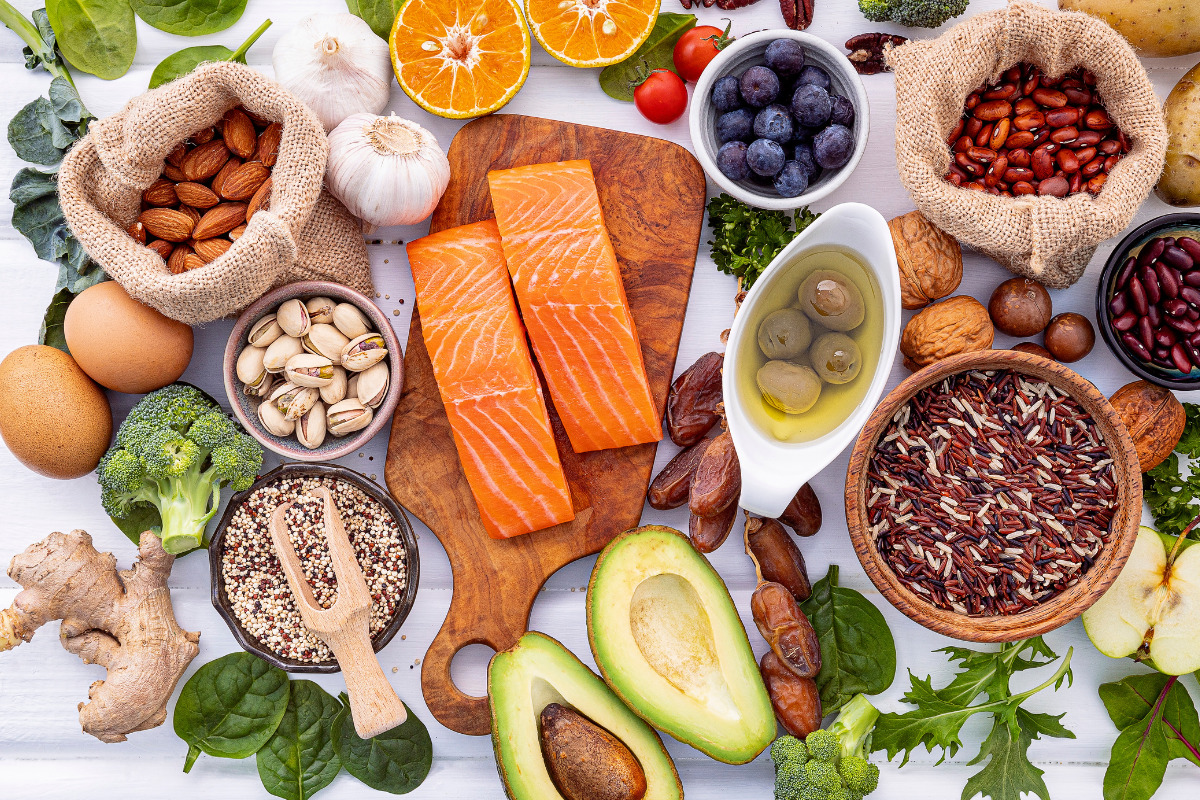How B Vitamins Can Help Alleviate Menopause Symptoms

Menopause is a time of change. As your estrogen levels decline, you may notice an influx of new symptoms. But what if relief could be found in the form of a vitamin?
The vitamin B complex is a group of eight B vitamins responsible for many bodily functions, including breaking down food for energy, transporting oxygen throughout the body, and maintaining cellular and tissue health. They are often present together in foods, and each vitamin has an important function. The eight B vitamins are:
- Vitamin B1 – Thiamine
- Vitamin B2 – Riboflavin
- Vitamin B3 – Niacin
- Vitamin B5 – Pantothenic acid
- Vitamin B6 – Pyridoxine
- Vitamin B7 – Biotin
- Vitamin B9 – Folate
- Vitamin B12 – Cobalamin
Essential B Vitamins in Menopause
Adequate intake of vitamin B is vital for health and well-being. In fact, one study found that “The role of compounds from the group of B vitamins cannot be overestimated in menopause.” While all B vitamins are important, some may provide extra relief for common symptoms of menopause.
Vitamin B6 – Pyridoxine
Vitamin B6, or pyridoxine, helps our body carry out more than 100 enzyme reactions. It also helps break down proteins, fats, and carbohydrates to use for energy. It is especially important in brain health and cognitive function.
During menopause, many women experience brain fog. As estrogen and progesterone levels drop, it can lead to feelings of forgetfulness, confusion, or lack of concentration. Getting enough vitamin B may be beneficial as studies have shown inadequate intake is associated with worsened symptoms of brain fog.
Vitamin B6 also helps the body in creating serotonin and dopamine. Often referred to as “happy hormones,” both dopamine and serotonin help to regulate mood and emotions. As women age, levels of serotonin often decline, which can exacerbate negative emotions often noted during menopause. Furthermore, rates of depression also increase during the time of menopause. Research has found that a high intake of vitamin B6 may lower the risk of depression in older adults.
Vitamin B9 – Folate
Folate is needed to help our bodies produce red and white blood cells, DNA, and other genetic material. It is an essential component in the breakdown of carbohydrates and homocysteine, an amino acid that can have harmful effects in large quantities.
High levels of homocysteine can damage your cardiovascular system. It may damage your blood vessels, increasing the risk of stroke, heart attack, or cardiovascular disease. Folate, in conjunction with B6 and B12, lowers homocysteine levels, resulting in a reduction of stroke risk by 19-25 percent. Homocysteine and deficient levels of vitamin B9 may also correlate with cognitive weakening and dementia in menopause.
Folate may also help provide relief to women experiencing hot flashes. In one study, 70 menopausal women were treated with folate for four weeks. After this period, there was a significant decline in the severity, duration, and frequency of hot flashes. The same study noted that folate intake has beneficial effects on aging. For example, improving anemia and reducing breast cancer in menopausal women.
Vitamin B12 – Cobalamin
Essential in red blood cell formation, brain health, and nerve function, vitamin B12 is another key vitamin in menopause. Around 20 percent of individuals older than 60 are deficient in vitamin B12, as it becomes more difficult for our bodies to absorb. This can lead to anemia and a decline in cognitive function.
In conjunction with vitamin B6, vitamin B12 has been found to support cognition and the ability to think, reason, and remember. It may also help to alleviate brain fog. Adequate intake of these vitamins may help to prevent the onset of dementia over time.
Bone loss may occur during menopause as a result of your estrogen levels dropping. Within the first five years following menopause, it is estimated that women lose up to 10 percent of their bone mass. Adequate levels of vitamin B12 have been found to have a protective effect against postmenopausal osteoporosis. One study found that women with low or deficient levels of vitamin B12 had higher rates of osteoporosis than women with normal levels.
Foods High in Vitamin B
Now that you know the importance of vitamin B, how can you make sure you are getting enough in your diet? Vitamin B is water-soluble, meaning it is not stored in our bodies for long periods of time. Therefore, we have to consume it regularly via our diet or supplementation. Food is always the best way to get essential vitamins and nutrients. Fortunately, many delicious foods are rich in this mighty vitamin.
Salmon and Shellfish
Salmon is rich in several B vitamins. A 3.5 oz portion contains a whopping 127 percent of the daily value of vitamin B12! Shellfish like oysters and clams are good sources, too.
Leafy Greens
Leafy greens, like spinach or collards, are a great way to pack in some folate. Half a cup of cooked spinach provides 39 percent of the daily value for vitamin B9. Try steaming the spinach to minimize vitamin loss. Other vegetables, including beets and avocados, are high in B vitamins.
Beans
Chickpeas, edamame, and black beans are rich in folate and vitamin B6. One cup of chickpeas provides 65 percent of the daily value for B6. Hummus is a delicious and nutritious way to work more chickpeas into your diet.
Liver and Organ Meats
While they may not be a staple in every kitchen, organ meats are full of B vitamins. A 3.5 oz serving of liver provides over 100 percent of the daily value for six B vitamins. Ground liver can be mixed with other ground meats if you’re not keen on the taste of liver.
Other great sources of vitamin B include eggs, milk, yogurt, chicken, beef, oysters, and clams.
Vitamin B Bottomline
As the building blocks to a healthy body, the vitamin B complex is essential to your health and may lessen the symptoms of menopause. As with all vitamins, whole foods are ultimately the best source.
Certain medical conditions like rheumatoid arthritis, ulcerative colitis, Crohn’s Disease, inflammatory bowel disease, alcohol use disorder, and others may prevent the absorption of B vitamins. Very strict vegan or vegetarian diets and certain medications may lead to a deficiency.
It’s always a good idea to talk to your healthcare provider before taking supplements or if you think you may be vitamin B deficient.
For more resources on nutrition and all things menopause, download the Midday menopause app.
Erin Stanton, RDN, MPH, is a registered dietitian and certified lactation counselor residing in Atlanta, Georgia. She puts her master’s in public health degree to good use as a freelance writer focusing on various health and wellness topics, especially those pertaining to women and children.
Sign up for more unique women’s health content
By submitting this form, you agree to the Lisa Health Privacy Policy and Terms of Use


